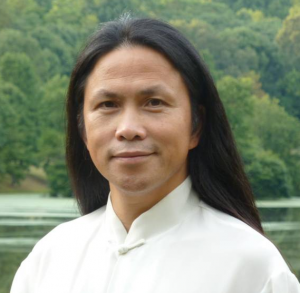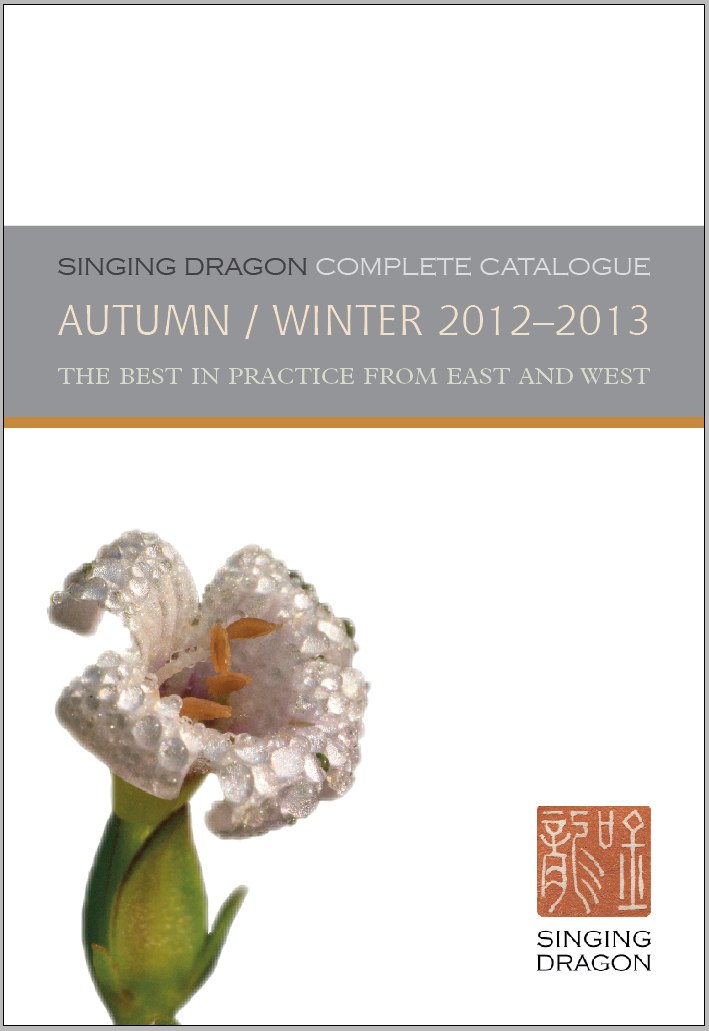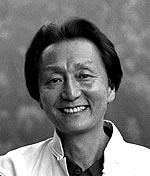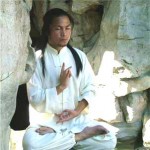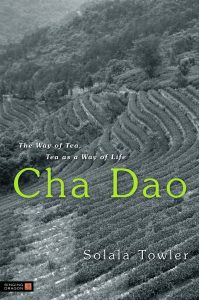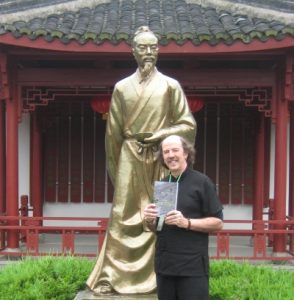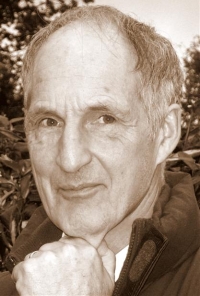 Recently, Richard Bertschinger stopped by the Singing Dragon offices in London to film a talk about his book, The Secret of Everlasting Life. On that occasion he alluded to some fascinating parallels between Chinese internal alchemy and the Arthuran legend. He kindly elaborates for us here.
Recently, Richard Bertschinger stopped by the Singing Dragon offices in London to film a talk about his book, The Secret of Everlasting Life. On that occasion he alluded to some fascinating parallels between Chinese internal alchemy and the Arthuran legend. He kindly elaborates for us here.
Click to watch the video of Richard’s talk.
Well, this is all speculation, you know! It is only that I have always been struck by the evocative image – I think we all have – of the Lady of the Lake, holding up the sword Excalibur. This is the sword with which King Arthur won his final battle. In Somerset we have many lakes that could have been the source of this legend. The idea of gentleness holding up the ultimate symbol of power and justice, I think we all have to admit, is doubly evocative.
Remember too that at the end of Arthur’s life he casts the sword back into the waters. So we have the idea of the completion of a cycle. The power returns back to the mystic waters. This is well told by Tennyson in The Idylls of the King. So we have strength returning back to its source. And let’s remember that Arthur is also called ‘the once and future king’. I think this rigmarole came from T.H.White, but he took it from the reputed Latin inscription on Arthur’s grave at Glastonbury Abbey. In some way he is out of time; he is born – but also eternal.
Now these ideas are fundamentally Taoist! Water is the source of all life in both northern European and Chinese folklore traditions. The Tao-te Ching states: ‘the greatest good in people, is like water’ (Chapter 8). It is known that much primitive life needs to return to water to reproduce – and sexuality (is it not?) is all about fluids! Fluids are the basis of life (you might remember the mad Colonel in the film Dr. Strangelove and his obsession with fluids?) But never mind. It has to be said that, along with fire, water and gold are two of the most fundamental elements in the alchemical process. You have water in the lake – and gold, that which never tarnishes, is represented by the mystical sword. The Chinese character for gold – 金 jin –stands for all metals. Interestingly enough it also stands for ‘the precious’ (but don’t get me started on Gollum and the Lord of the Rings!).
Enough to say that there are parallels, out and about, throughout all the high romance of northern European folk-lore and Chinese mystical, internal alchemy, While we are on the subject, it is interesting, isn’t it, that we wear the Golden Ring as a wedding ring? The ring is the symbol of eternity, itself. You only have to consider the idea of the snake eating its own tail, or uroboros, which C.G. Jung identified as one of his archetypes, or symbols within the ‘collective unconscious’. So with the ring (or circle) and gold we have two symbols of the unchanging and eternal.
In Chinese internal alchemy the ‘gold is plucked out the water’ – just as ‘the wood is taken out the fire’. In both cases this means that Change is arrested. It’s dramatic. It is meant to be. In the Candong Qi (The Secret of Everlasting Life, Chapter 10) comes the phrase:
know the white, but guard the black,
the spiritual light comes of itself;
for the white is the fine gold,
but the black is the water taken as basis
Let’s unpack this a little bit. The phrase ‘know the white, but guard the black’ (which incidentally is from the Taoist scripture, the Tao-te Ching, Chapter 28) shows how although we understand the white, the brilliant, ‘the fine gold’, we seek its source in the black, the dark of the waters. Indeed the ‘spiritual light comes of itself’ – this refers to Taoist non-action, or wuwei. Spirituality is no big deal, we might say. So Arthur finds his ultimate strength – that which will enable him to rule supreme and conquer every foe – given to him by a mystic lady, during a walk in the woods. Guided, some say, by the magician-shaman Merlin. Under the dark and misty trees he comes across a vision of ultimate strength, born from the dark waters.
There is much more on this in the Chinese alchemical tradition. The sword is, of course, a sword of truth. It is no coincidence that our law-courts use the symbol of blindfolded justice holding a sword. In the Awakening to Reality poem (the Wuzhen Bian) the renown Zhang Boduan has the verse:
The Smelter Ou told to his friends
A Spell for casting a Sword
Named ‘Do No Evil’, in which
Gold and Water were evenly Matched!
Once finished, it knew
The will of the one who wore it –
Ten-thousand miles, it eradicated
GOBLINS IN A FLASH!
Here we have a clear indication of the wondrous use of a single sword, which combats all evil. When gold and water are evenly matched the sword comes into being. Now follow this closely. This is because in the ‘cycling five’ (aka: The Five Element cycle) metal, or gold gives birth to water. (Just as incidentally ‘wood gives birth to fire’.) But in the alchemy we reverse natural process. This is extremely important. And so gold is born from water – ‘the mother hiding her little child’. This is explained in Chapter 10 of The Secret of Everlasting Life, entitled ‘Understanding the Double-Entranced Cave of Knowledge,’ which is basically all about how to find the pathway to inner knowledge. There is a wonderful line in this poem:
the uttermost real in man is fascinating,
as if there, as if not…
it feels like toppling into the great deeps,
now in the shallows, now in the depths…
This is, of course, the basic tenet of Chaos Theory, which says that it is on the boundaries of Chaos that the most interesting things (like the creation of life) happen. There is a most wonderful book to read on this by John Gribbin (Deep Simplicity).
In summary, the gold taken out of the water, the sword of truth brought up and given to King Arthur by the Lady of the Lake describes the internal alchemical process achievable by each one of us, each of us who commits to the spiritual path.
Zhang Boduan’s next stanza in Awakening to Reality states:
Tap with Bamboo, summon the Tortoise,
To swallow the Magic Jade Mushrooms;
Strum the Lute, summon the Phoenix
To eat off the Knife-point.
Soon through the whole body
A Light appears:
Not with everyone
CAN YOU DISCUSS THESE CUSTOMS!
Now the Chinese yoga and meditation of the internal alchemists get to work (‘tap with bamboo, summon the tortoise’ refers to The Book of Change or I Ching divination). As we proceed with our shamanistic ceremony (‘strum the lute, summon the phoenix’) – we uncover an Elixir which can be taken and eaten within, ‘off the point of a knife’. We only need the merest scrap of it! Then ‘soon through the whole body a Light appears’. This is the ultimate spiritual transformation.
The Chinese alchemists certainly knew a thing or two! Isn’t it interesting how a few threads of this wisdom found their way into northern European and Arthurian legend?
Copyright © Singing Dragon 2011.
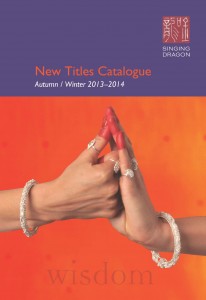 Our Singing Dragon New Titles catalogue for Autumn and Winter 2013-14 is now available. With full information on our expanding list of books in Chinese Medicine, Qigong, Daoism, Yoga, Aromatherapy, and a variety of other disciplines, our new titles catalogue is an essential resource for complementary health practitioners and anyone interested in enhancing their own health, wellbeing and personal development.
Our Singing Dragon New Titles catalogue for Autumn and Winter 2013-14 is now available. With full information on our expanding list of books in Chinese Medicine, Qigong, Daoism, Yoga, Aromatherapy, and a variety of other disciplines, our new titles catalogue is an essential resource for complementary health practitioners and anyone interested in enhancing their own health, wellbeing and personal development.